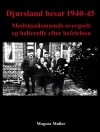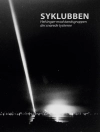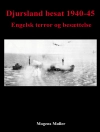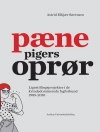Presenting the 1937 diaries of John F. Kennedy’s tour of Europe, this volume offers insights into his early experiences on a continent under the shadow of Nazism.
In 1937, while still a student, John F. Kennedy undertook a grand tour of Europe with his close friend and traveling companion, Lem Billings. On this journey he began to keep a diary, which is reproduced here in full and provides an unadulterated account of his thoughts and feelings. Superficially, it presents a picture of two young men enjoying their summer, sightseeing, going to the movies, bars and night clubs; but behind this we find, in Kennedy’s political observations and encounters, the looming shadow of Nazism. In retrospect there are blind spots and misjudgments, but also insights of great topicality, for example on populism, and propaganda and its potent effects. On this trip and during his later travels in Germany, Kennedy engaged with the crucial questions of his later presidency: How does a dictatorship work? How is an alternative concept of society to be countered? And how can an impending war be averted? Kennedy’s European and Russian policies and also his famous Berlin speech of 1963 (“Ich bin ein Berliner”) are to be understood against this background.
In addition to numerous archive photographs, this volume contains Kennedy’s complete diary of his 1937 trip to Europe and, as a counterpart, the “Scrapbook” of Lem Billings who documented it from his perspective.
Cuprins
Acknowledgements
About this book
Introduction: “Hitler seems so popular here”: John F. Kennedy’s Travels in Germany Between Insight and Misperception
Oliver Lubrich
Editorial Principles
Images 1939-1945
John F. Kennedy—European Diary, July—September 1937
Kirk Le Moyne Billings—Scrapbook, 1937
Images 1937
Travel Itinerary and Timetable
Bibliography
Despre autor
Oliver Lubrich is Professor of German and Comparative Literature at the University of Berne in Switzerland. He has published monographs on Shakespeare and on post-colonial poetics. Most recently he published W. E. B. Du Bois’ reports from Germany of 1936 (2022) and an intellectual biography of Alexander von Humboldt (2022).












